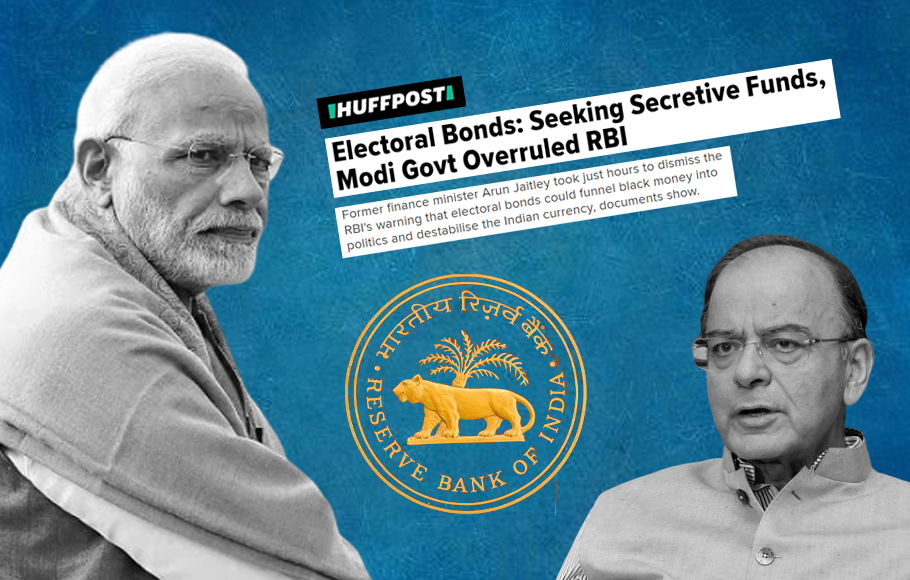
Modi govt ignored RBI warnings against electoral bonds, reveals report

Congress leader Rahul Gandhi on Monday (November 18) took a swipe at the government over reports that it overruled the RBI to introduce electoral bonds, saying in “New” India, bribes and illegal commissions are called electoral bonds. “In New India, bribes & illegal commissions are called Electoral Bonds,” Gandhi said in a tweet.
In “New” India, bribes & illegal commissions are called Electoral Bonds. https://t.co/mYl5OxcVLU
— Rahul Gandhi (@RahulGandhi) November 18, 2019
Earlier, Congress general secretary Priyanka Gandhi Vadra also attacked the government on the issue, alleging that electoral bonds were “cleared by bypassing RBI” and “dismissing” national security concerns in order to enable black money to enter the BJP coffers.
The Congress leaders made the remark after a report in HuffPost India revealed that the Centre ignored the Reserve Bank of India’s suggestion not to launch electoral bonds as it would allow political parties to receive funds anonymously.
HuffPost India claimed that four days before former finance minister Arun Jaitley proposed the electoral bond scheme in the February 2017 Budget, a tax official flagged that such a system would require amendments to the Reserve Bank of India Act. In a note on January 28, 2017, the official sent a draft of the proposed changes to senior officials in the finance ministry.
RTI reveals how ‘electoral bonds’ became instruments of anonymous donations bordering on opaque ‘money laundering’.
Will the Modi Govt answer-
1. How many thousand crores of bonds issued?
2. How many thousand Cr’s received by BJP?
3. The ‘Quid Pro Quo’?https://t.co/O7Pk8rg1bi— Randeep Singh Surjewala (@rssurjewala) November 18, 2019
A finance ministry official then forwarded the draft, with the message “For early comments”, to then RBI deputy governor Rama Subramaniam Gandhi. The central bank responded the next working day, opposing the scheme. It said electoral bonds would set a “bad precedent” and could be used to launder money.
The central bank’s reservations were reportedly dismissed by then revenue secretary Hasmukh Adhia, who claimed that the RBI had not understood the proposed mechanism of having pre-paid instruments. Adhia told RBI that its advice had arrived late as Budget documents had already been printed.
In a detailed reply to RBI’s concerns soon after, the government claimed that Parliament was “supreme and has the right to legislate” on all matters of governance, including the RBI Act. In June 2017, the Centre formed guidelines on how the scheme would work.
Also read: Check on black money in polls futile if identity of donors is not known: SC
The details of the electoral bonds were also kept beyond the ambit of the Right to Information Act, and parties were exempt from maintaining details of contributors. Even after discussions between the RBI governor and Jaitley later in July, the central bank flagged the scheme’s drawbacks the following month. BP Kanungo, then RBI deputy governor, noted “inherent scope of misuse of such bonds for undesirable activities”.
Interestingly, data compiled by the Association for Democratic Reforms (ADR) electoral bonds worth at least Rs 6,000 crore have been sold since March 2018. Of the first tranche, worth Rs 222 crore, the BJP has garnered 95% of the money.
Govt gets it left, right and centre
“The finance minister had said these bonds will be in the nature of a bearer bond, the identity of the donor will be kept anonymous, I am yet to find a dictionary that says transparency and anonymity are the same things, the Electoral Bonds are extremely damaging to the Indian democracy,” Jagdeep Chhokar, one of the founding members of the ADR said.


